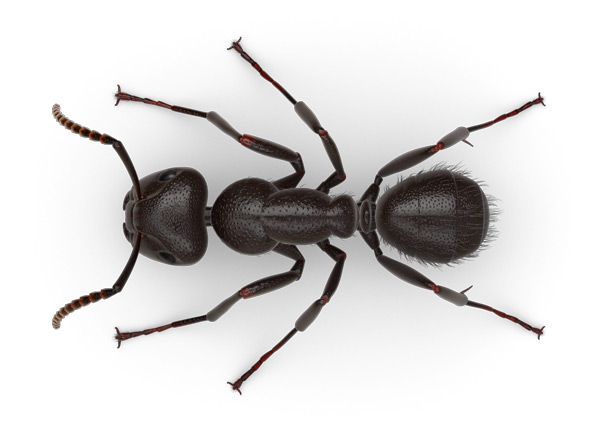After a cold and bitter winter, everyone looks forward to the warmth and comfort of spring. However we humans are not the only organisms that look forward to the change of seasons. With the advent of spring comes the arrival of different pests, chief among those are ants. To many ants are simply a nuisance pest, undesirable insects that scavenge your home looking for food to bring back to their colony. However there is one species which although not overly physically harmful to humans can be very damaging to us in other ways: Carpenter Ants.
Like all of their kind, Carpenter Ants live in colonies which can range from a few dozen individuals to large highly organized colonies. Like all ants they become defensive when these colonies are disturbed, and they are among the few species whose bite can be quite painful in the unlikely event you end up on the receiving end. They have large mandibles which can potentially break skin, and can spray formic acid into wounds which can further increase soreness.
The biggest damage about Carpenter Ant colonies however is not in their bite but in their choice of habitat. Carpenter ants build their colonies in moist or decaying wood, and can set up colonies both indoors and outdoors. They do not eat wood like termites, but in fact dig into it to build their colonies. Should your home provide the right conditions, they can prove very damaging to property if left unchecked. Windows, sinks, doorframes and wall voids are all problem areas. Since these are areas that can often go unnoticed to us humans, it is important to look for warning signs when spring rolls around.
The most obvious sign of a carpenter ant infestation is their very presence. Should you see one of these larger black ants in your home, it does not necessarily mean there is a colony in your house but it does mean they are in the area. As such be aware, proactive and consider an extermination.
There are more subtle signs to consider as well. Winged or flying ants in a house are a clear indication that either a nearby colony is moving into your home or has set up shop already. Should you hear scratching or rustling sounds coming from your walls, or an accumulation of woodchips or sawdust within the house there is a very real chance you have colony that is causing damage to your property.
Regardless, be aware come springtime and call Ant Control to protect your home from these damaging pests.
